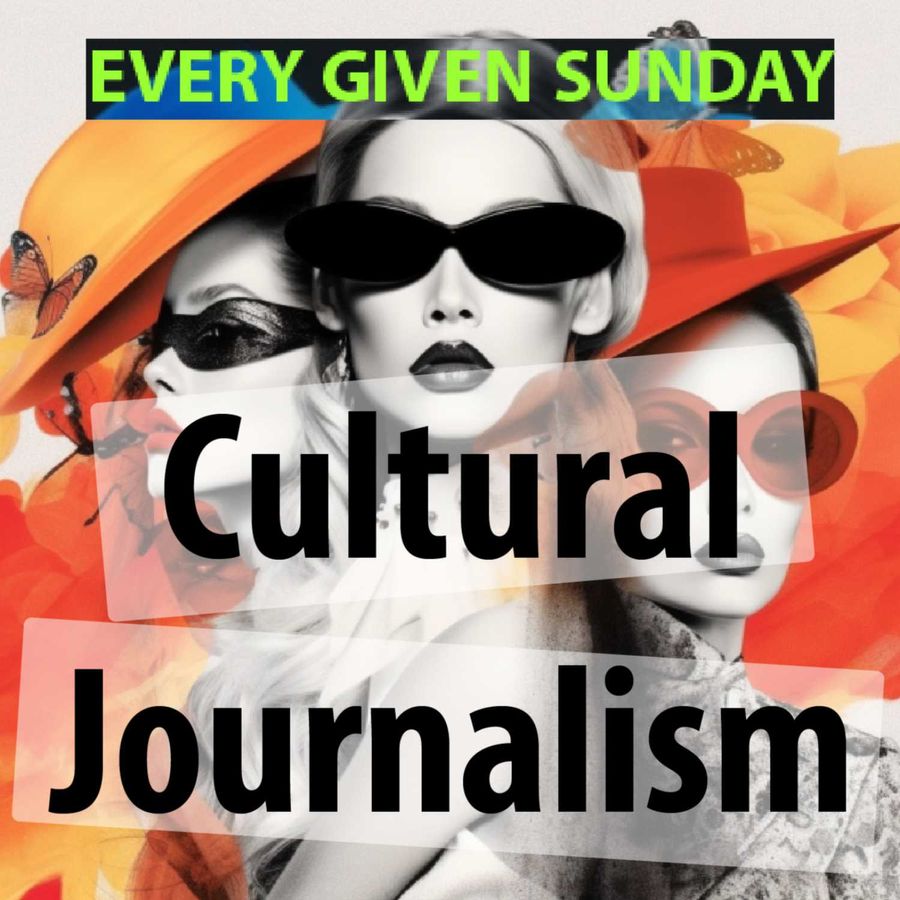Cultural Journalism: The Inescapable Dance of Subjectivity and Objectivity
In the realm of journalism, few genres provoke as much intellectual curiosity and ideological controversy as cultural journalism. Nestled between the jagged cliffs of subjectivity and the rigid bastions of objectivity, cultural journalism is a testament to the intricate interplay between the journalist's perception and the perceived cultural landscape. Today, I shall delve into the multifaceted nature of cultural journalism, challenging conventional wisdom and unearthing the complexities beneath the surface.
The Problematic Dichotomy:
Before embarking on a comprehensive exploration, it is crucial to dismantle the prevailing assumption that cultural journalism can be neatly divided into subjective and objective realms. This false dichotomy stifles our understanding of the subject and hinders our ability to appreciate the nuances inherent in the craft. At its core, cultural journalism is an inseparable amalgamation of objective observation and subjective interpretation. The best cultural journalists understand that they are both observers and participants, seeking to provide an informed and nuanced perspective on the cultural phenomena they encounter.
The Fluidity of Culture:
By its very nature, culture is an ever-changing entity, evolving and adapting to the vicissitudes of time. Attempting to encapsulate and define culture within the rigid confines of objectivity is akin to capturing a hummingbird's flight with a butterfly net. Cultural journalism must recognize this fluidity and be prepared to navigate the tumultuous currents of human creativity, embracing the subjectivity necessary to understand and interpret cultural phenomena. Cultural journalism finds its true power within this delicate balance of objectivity and subjectivity.
The Fallacy of Objectivity:
To fully comprehend the limitations of objectivity in cultural journalism, we must turn to history. The annals of journalism are littered with the failures and missteps of those who claim to be objective observers of culture. For example, Walter Duranty, a renowned journalist of his time, shamefully whitewashed the atrocities of Stalinist Russia, denying the Ukrainian famine that claimed millions of lives. This example is a stark reminder that pursuing objectivity can lead to the distortion and erasure of important cultural narratives. Cultural journalism must learn from these mistakes and acknowledge the inherent subjectivity in its craft.

The Role of the Cultural Journalist:
Cultural journalists are not merely scribes chronicling the cultural landscape; they actively shape the discourse and narrative surrounding cultural phenomena. Through the lens of subjectivity, cultural journalists can infuse their work with meaning, contextualize events, and foster critical thinking. This subjectivity, far from being a detriment, is a powerful tool for engaging readers and igniting a dialogue that transcends the pages of a publication. Armed with erudition and incisiveness, the cultural journalist is responsible for challenging societal norms and provoking intellectual rigour.
A Paradigm of Intellectual Consumption:
To appreciate the transformative potential of cultural journalism, we must reimagine how we consume intellectual content. Planksip, a philosophy media outlet that strives to redefine the consumption of knowledge, serves as a fitting example. In an era dominated by soundbites and superficial engagement, Planksip offers a platform that demands intellectual rigour and critical thinking. By encouraging readers to engage critically with the ideas presented, Planksip exemplifies the power of cultural journalism to transcend the boundaries of passive consumption and ignite the fires of intellectual curiosity.
Conclusion:
Cultural journalism, as a genre, defies simplistic categorizations. It resides in intellectual limbo, where subjectivity and objectivity engage in an intricate dance. By challenging conventional wisdom, embracing subjectivity, and drawing upon historical references, cultural journalism enriches our understanding of the world and ignites the fires of critical thinking. Planksip, with its commitment to intellectual rigour and a transformative paradigm of consumption, exemplifies the potential of cultural journalism to shape the discourse and redefine what it means to engage with knowledge.
In pursuing cultural understanding, let us abandon the illusory dichotomy of objectivity and subjectivity. Instead, let us embrace the delicate interplay between the two and strive for a deeper appreciation of the cultural tapestry surrounding us. Through the prism of cultural journalism, we can uncover the profound and elusive truths that lie beneath the surface, forever evolving and beckoning us to engage with intellectual rigour and unrelenting curiosity.


